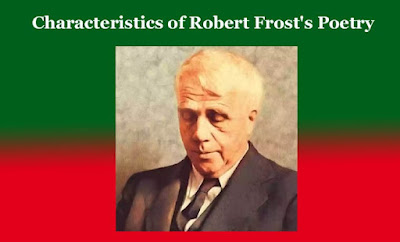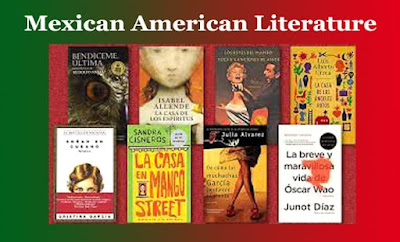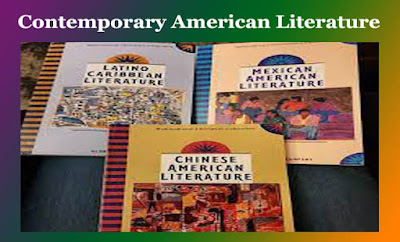Characteristics of Robert Frost's Poetry
Characteristics of Robert Frost's Poetry
Characteristics of Robert Frost's Poetry
Introduction:
Robert Frost (1874–1963) was an American poet known for his rural New England settings and use of everyday language. Here are some chief characteristics of Robert Frost along with examples from his poetry:
Robert Frost's Poetry - Chief Characteristics
Regionalism and Rural Life:
Robert Frost's poetry often reflects his fascination with rural life and the landscapes of New England. His poems capture the simplicity, beauty, and challenges of living in the countryside.
Example: In the poem "Mending Wall," Frost explores the tradition of repairing a stone wall that separates two neighbors, reflecting on the rituals and customs of rural life.
Nature and Symbolism:
Frost frequently used nature as a backdrop for his poetry, and he employed symbolic elements to convey deeper meanings. Nature in Frost's poems is not merely a backdrop but a character that interacts with and influences human experiences.
Example: In "Stopping by Woods on a Snowy Evening," the snow-covered woods serve as a metaphor for life's journey and the allure of temptation.
Ambiguity and Complexity:
Frost's poems often contain layers of meaning and invite multiple interpretations. He embraced ambiguity, leaving room for readers to engage with his work on various levels.
Example: In "The Road Not Taken," Frost presents a traveler at a crossroads, facing choices that reflect life decisions. The poem's ending leaves room for interpretation about the consequences of choices made.
Narrative Style and Conversational Tone:
Frost's poetry often has a conversational and narrative style. His use of everyday language and colloquial expressions helps create an accessible and relatable tone.
Example: In "The Death of the Hired Man," Frost tells a story through dialogue between characters, capturing the complexities of human relationships and compassion.
Themes of Isolation and Loneliness:
Many of Frost's poems explore themes of isolation and loneliness, portraying characters who grapple with their individuality and the human condition.
Example: "Acquainted with the Night" delves into the solitary experiences of the speaker as he walks the city streets at night, highlighting feelings of isolation and alienation.
Philosophical Reflections:
Frost's poetry often delves into philosophical and existential themes, exploring the nature of existence, the passage of time, and the choices that shape our lives.
Example: In "Birches," Frost reflects on the transient nature of life, using the image of bending birch trees as a metaphor for the flexibility needed to navigate the challenges of existence.
Use of Traditional Verse Forms:
Frost frequently employed traditional poetic forms, such as blank verse and rhyme schemes. His mastery of form and structure is evident in his ability to convey complex ideas within the constraints of traditional verse.
Example: "The Road Not Taken" uses a regular rhyme scheme and a structured form, contributing to the poem's overall musicality and memorability.
Conclusion:
Robert Frost's poetry reflects a deep understanding of human nature and the world around him. His ability to capture the complexities of life in accessible language has made his work enduring and influential in the realm of American literature. 0 0 0. Characteristics of Robert Frost's Poetry
You May Like:










Comments
Post a Comment